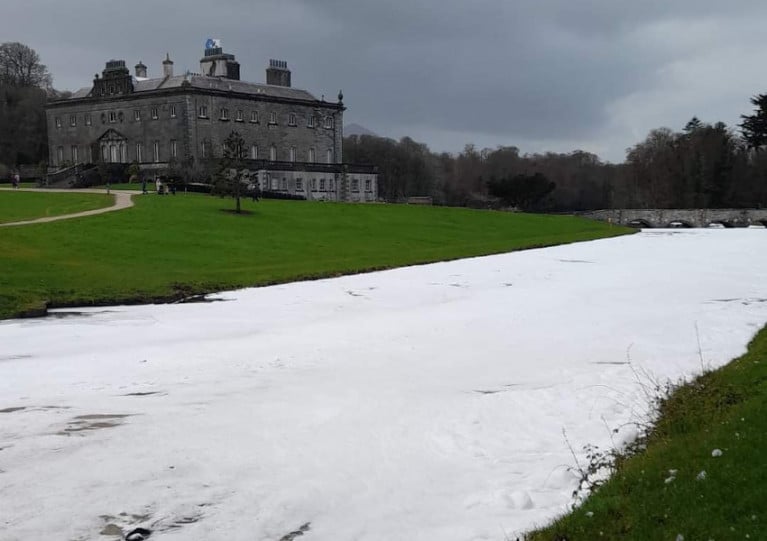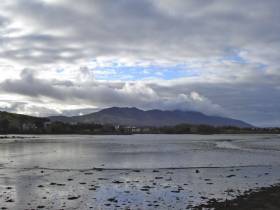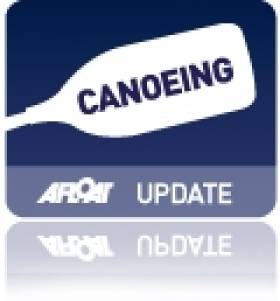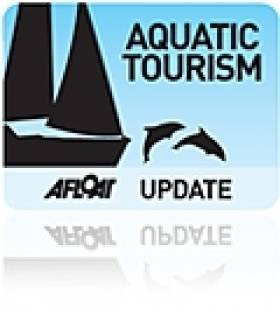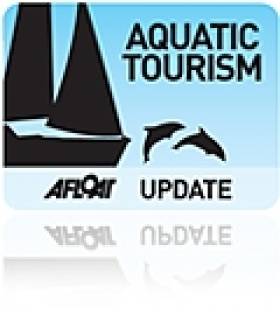Displaying items by tag: Westport
Marina For Westport Proposed As Major Local Facility And Vital Link For Cruising Atlantic Seaboard
The almost absurdly picturesque township of Westport at the head of Clew Bay has been variously acknowledged and nationally recognised as “Ireland’s Best Place to Visit”, and Ireland’s “Best Place to Live”. Even if dedicated misanthropes would argue that any self-respecting township - however lively and easy it is on the eye – simply can’t be both at once, there’s no doubting that hospitable and facilities-rich Westport has an impressive array of factors in its favour.
Yet this only adds to the frustration of cruising folk making their way along Ireland’s Atlantic seaboard, when they make a diversion into island-studded Clew Bay in the hope of savouring Westport’s numerous charms. For Clew Bay’s many islands – with a host of secret anchorages among them – are simply too much of a good thing.
 Too much of a good thing? There are so many islands and sheltered anchorages at the head of Clew Bay that it’s difficult deciding which is the most convenient for accessing Westport (lower right)
Too much of a good thing? There are so many islands and sheltered anchorages at the head of Clew Bay that it’s difficult deciding which is the most convenient for accessing Westport (lower right)
Thus it has ended up with the thriving Mayo Sailing Club having its well-furnished base at relatively remote Rosmoney, hidden among the islands and inlets a good 9.2 kilometres northwestward from Westport. Other anchorages conveniently reached from sea are wellnigh inaccessible by land unless you’re in the know on where certain tree-lined un-signed boreens are leading. And while the obvious and most direct seaward access point to Westport is to berth at Westport Quay, much of that ancient port dries or has shallow depths at low water.
 Chartlet of Westport Quay – even with a berth here, you are still 3 kilometres from Westport town. Courtesy Irish Cruising Club
Chartlet of Westport Quay – even with a berth here, you are still 3 kilometres from Westport town. Courtesy Irish Cruising Club
And anyway, Westport Quay is itself more than 3 kilometres from Westport itself, which can seem a challengingly long distance if you’d like to amble into town, but have walked no further than the length of a cruising boat’s deck for the past week. That said, Westport Quay is an attractively bustling and hospitable community in its own right, quite enough of a destination in its individuality for many of us. And if you want to hit the bright lights of the big city at Westport itself, it’s only a modest taxi fare to reach one of the best nights on the town Ireland has to offer, if you could only be secure in the knowledge that your boat is safely berthed back in Westport Quay.
But with its uneven depths and large tidal range, Westport Quay cannot provide that guarantee. So not surprisingly, noted Clew Bay sailor Alex Blackwell – better known for his ocean voyaging – has been spending some of his time at home in Mayo during the past decade and more in sussing out the possibilities of providing acceptable modern berthing at Westport Quay, complete with the expected facilities such as a Travelhoist.
 Ocean voyagers Alex and Daria Blackwell of Clew Bay. While they keep their 57ft ketch Aleria in a secret anchorage among Clew Bay’s mny islands, Alex is well aware that visiting boats need more immediate access to shoreside facilities
Ocean voyagers Alex and Daria Blackwell of Clew Bay. While they keep their 57ft ketch Aleria in a secret anchorage among Clew Bay’s mny islands, Alex is well aware that visiting boats need more immediate access to shoreside facilities
Having built up a cohort of like-minded folk in favour of the idea, they have recently been presenting the idea to stakeholders including the local community, tourist interests, boating enthusiasts, the Chamber of Commerce and Mayo County Council, and they’ve been much encouraged by the favourable response.
The scheme – which could in its entirety provide 130 berths – is in two parts. The first phase depends on the installation of a proper sea lock – not a time-constricting tidal gate – at the west end of the river-like stretch of the harbour beside Westport Quay’s attractive waterfront. Provided the sea lock can offer extensive time options for access to the lower channel (which admittedly has shoal sections) and the open sea beyond, it will give significant freedom of movement for boats based in the enclosed berths, pontoon berths which can be provided without the need for extensive and expensive dredging.
 Phase 1 of Westport Marina would be provided by a tidal retention barrier and a sea lock.
Phase 1 of Westport Marina would be provided by a tidal retention barrier and a sea lock.
Phase 2 is the more ambitious project of dredging the lagoon area close to the westward, immediately south of Roman Island. This is a major concept, as it includes a multi-berth accessible-all-tides marina and 40 acres of recreational water right beside the heart of Westport Quay.
 The much more ambitious Phase 2 would involved dredging, but it would provide highly-accessible recreational water space in addition to extra all-tide berths
The much more ambitious Phase 2 would involved dredging, but it would provide highly-accessible recreational water space in addition to extra all-tide berths
From the wandering cruising person’s point of view, the possibility of a secure berth in the heart of civilisation will offer an attractive change from the rugged offshore islands and remote anchorages which fill much of the menu in a Connacht cruise. And from a strategic point of view, Westport is one of the most westerly points providing direct access to Ireland’s railway network. Longer term berthing in a marina at Westport Quay would offer all sorts of fresh and accessible cruising possibilities on the Atlantic seaboard from most of Ireland’s major conurbations.
Be warned, however, that if you rail your way down to Westport with a crew just let off the leash after some intensive weeks of work, it may take a will of iron to head immediately to the boat from the train, instead of pausing “just for a minute” to savour the entertainments of Westport in a place like Matt Molloy’s. For he’s a sailing man himself, and you know what it’s like when people get talking about boats.
 Matt Molloy of Westport – he would as soon talk about boats as his famous music
Matt Molloy of Westport – he would as soon talk about boats as his famous music
Fisheries Officers Investigate Pollution Incident in Westport River Known for Brown Trout
Inland Fisheries Ireland (IFI) investigated a pollution incident that occurred last weekend on the Carrowbeg River in Westport, Co Mayo.
IFI received a number of calls to the hotline number and had a report from the landowner where the pollution incident occurred last Saturday 16 January.
Fisheries staff responded to the report of what’s understood to be an accidental detergent discharge into the Carrowbeg River that afternoon.
The Carrowbeg River is the main river that runs through Westport town and has an abundant indigenous brown trout population, as well as being is an important amenity to the local community.
IFI officers attended the scene and worked with the landowner to identify the source and to carry out immediate remedial works.
IFI says its staff continue to monitor the site and carried out kayak and drone surveys of the catchment area over the weekend to assess implications for the fishery. Surveys to date have not found any evidence of a fish kill resulting from the incident.
IFI says it has had “subsequent engagement with the landowner regarding remediation works to be undertaken at the site” and is liaising with with Mayo County Council’s Environmental Section on analysis of samples from the affected stretch of river.
Patrick Gorman, Galway director in the Western River Basin District at IFI, says: “Inland Fisheries Ireland urges members of the public to be aware of the environmental risk posed to their local waterbodies should such discharges be made into road or car park drain networks.
“Members of the public can report suspected pollution or poaching incidents to Inland Fisheries Ireland’s 24-hour confidential hotline on 1890 34 74 24.”
Westport Harbour Pontoon & Slipway Plans Open For Inspection
#Westport - Submissions are now open on plans for a new pontoon and slipway for Westport Harbour, as the Mayo News reports.
Intended as an interim measure for the Co Mayo coastal town as more ambitious proposals for a marina development remain on hold over costing issues, the 37m slipway and 42m pontoon could be ready two years from now if greenlit through the planning process.
The infrastructure would also prove useful for the proposed new coastguard station in the harbour, plans for which were lodged earlier in the year.
Plans are now open for the public to view at the West Mayo Municipal District offices till Tuesday 13 September, with the consultation closing on Friday 30 September.
The Mayo News has more on the story HERE.
Westport To Host Sea Lice Conference This September
#MarineScience - The 11th International Sea Lice Conference will be hosted by the Marine Institute in Westport, Co Mayo from 26-28 September 2016, it has been announced.
This biennial gathering of the world's most prominent sea lice research will hear the latest papers, presentations and posters of the most up-to-date research in the field – such as last year's paper that identified salmon farming's impact on wild salmon and sea trout stocks.
The goal of the conference is to bring together leading international researchers, groups and regulatory agencies to foster collaboration and communication on sea lice research and to advance our understanding of the key biological, environmental and management factors associated with sea lice in both wild and farmed settings.
Presenters will be invited to submit papers which may be published in the Journal of Fish Diseases as a special edition.
Registration is now open for prospective presenters, who should also submit abstracts of their research. A limited number of scholarships for students are also available.
For more information visit the conference website HERE.
Plans Afoot For New Westport Coastguard Station
#Coastguard - Plans have been lodged for a new coastguard station in Westport, as the Connacht Telegraph reports.
Proposed for a site on Mayo County Council land next to the old boat house on Westport Harbour, the station would comprise a three-storey building with a boathouse and a sloping grass bank, plus a new access road.
Minister of State Michael Ring welcomed the "state-of-the-art project" for the coastguard unit established in 2003 as one that is "badly needed in Westport" as "a vital lifesaving facility".
The news comes as the Irish Coast Guard nationally marked 2015 as its busiest year since 1991.
The Connacht Telegraph has more on the story HERE.
UL Take Title at Irish Kayaking Intervarsities
#KAYAKING - The University of Limerick were overall winners in the 2012 Irish Kayaking Intervarsities at GMIT Castlebar last weekend.
As the Mayo Advertiser reports, some 500 students were on hand for the three days of competition, which kicked off with canoe polo on Lough Conn (won by GMIT over DCU).
Saturday's action saw the whitewater contest on the Clydagh River, with Limerick emerging on top, and the freestyle event on the River Clare at Tuam Wave.
Sunday closed with the long distance event at Lough Lannagh, which clinched the weekend for UL's kayakers.
Mayo also hosted the Irish Intervarsity Sailing Championships in Rosmoney last week, which attracting 200 students to the Westport area.
Business Brisk in Dun Laoghaire for Charter Yachting Company
#LEARN TO SAIL - Charter yacht trip firm GoSailing.ie is weathering the recession, as the Sunday Business Post reports.
The venture - which provides daily and corporate yacht excursions since setting up in 2000 - reacted to a shortfall in customers due to the changing ecomonic climate by relocating from Westport to Dun Laoghaire marina, where business has been brisk.
Aaron O'Grady, a veteran of the Irish Olympic sailing squad, started the business with his father Pauric, the duo investing in a 54-foot yacht The Explorer to run sailing trips off the Mayo coast, helping novices learn to sail.
They later teamed up with business manager Bref Kennedy, who says that the recreational sailing business has plenty of room to grow.
"Our main goals are trying to break the perception of sailing that pervades in Ireland and also to introduce people to the exciting world of sailing on the extremely under-used and beautiful coastline that exists right on our doorstep," said Kennedy.
GoSailing is also the only company providing a charter yacht service on the east coast, according to Kennedy, which is "amazing considering we are an island nation".
Charter yachting trips around Dublin Bay, Killiney Bay and Dalkey Sound typically go for around €35 a head for groups of 12. For more details visit GoSailing.ie.
Fáilte Ireland Highlights 'Huge Potential' of Marine Tourism
#AQUATIC TOURISM - Water-based activities from kayaking to surfing to diving have a "huge potential" for Irish tourism.
That was the message from Fáilte Ireland's Outdoor Adventure and Activity Forum in Westport, Co Mayo this week, The Irish Times reports.
Figures announced at the forum showed that angling tourism accounted for €58 million in revenue, while surfing attracted 52,000 visitors - a low number considering Ireland's growing reputation in the sport.
Fáilte Ireland's Brian Maher said that the agency is working on a new strategy for aquatic tourism to take advantage of Ireland's potential in the area, aiming to develop activities from angling to cruising and sailing to surfing.
“One of Ireland’s great strengths has been in angling," he said. "There is still tremendous potential there for that core group of anglers.
"It is incumbent on us to develop this and other water-based activities properly because there is so much potential there.”



























